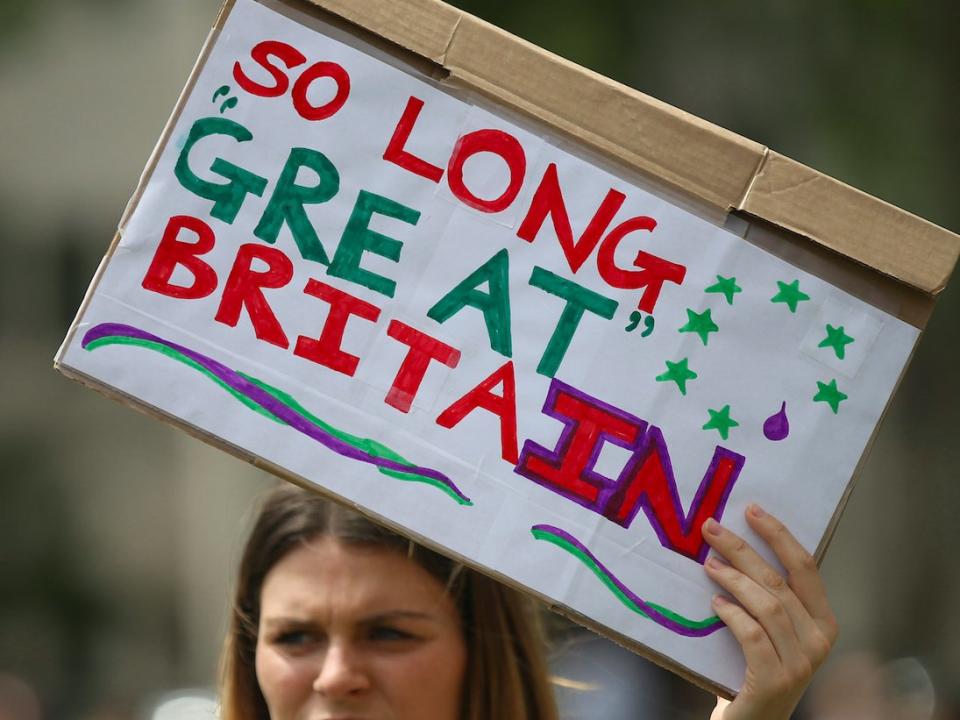An international bank is already pulling business out of the UK because of Brexit

Tim Ireland / AP/Press Association Images
Southeast Asia's third-largest bank, United Overseas Bank, has stopped funding mortgages for UK properties, one of the first examples of investment in Britain drying up in after the British vote to leave the European Union.
The Times quotes a representative for the Singapore lender as saying: "As the aftermath of the UK referendum is still unfolding and given the uncertainties, we need to ensure our customers are cautious with their London property investments."
It is highly unusual for an international bank to put this kind of blanket ban on a particular market or type of business and signals just how serious the so-called Brexit vote is seen overseas.
The Remain campaign argued before last week's referendum on the UK's EU membership that a Leave vote could cause investment in Britain to shrink. This is a concrete example of that — money sitting in a Singaporean bank that could have ended up London's property market is now staying put.
While this will come as a blow to estate agents in the UK capital's most exclusive postcodes, for ordinary people this drying up of investment could actually be seen as a good thing.
Many political commentators have argued that the Brexit vote was less a vote against the EU specifically and more an expression of anger at the status quo from people who feel let down and left behind by a system that only really caters to the rich and educated.
Most of this anger at the top is found in "Middle England" — the towns and rural areas across the country that aren't part of a big city. But even London, a Remain stronghold, has its share of anger at the system.
House prices have spiralled in the capital since the 2008 financial crash, and this has led to anger among the young who feel they are being priced out of the market by wealthy foreign buyers who are crowding the market. The press has even dubbed this group "Generation Rent."
The average London property price passed £600,000 ($800,000) for the first time at the beginning of June, according to Land Registry data. Properties in London are now almost 60% more costly than they were before the 2008 financial crisis.
Many young Londoners may feel that stopping Singapore investors from buying up properties in the capital might not be such a bad thing after all, and the wider country will most likely have sympathy for their grievances. While it is an example of "investment" drying up, too many properties in London are being bought as simply "investments" — empty homes just sitting there accruing value.
NOW WATCH: How to make it out of a free-falling elevator alive
See Also:
SEE ALSO: The average London house price? £600,076
DON'T MISS: London's property market is now nearly 60% beyond the point of the 2008 crash

 Yahoo Finance
Yahoo Finance 
